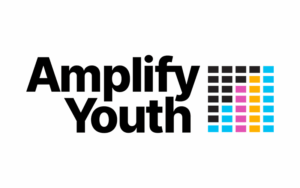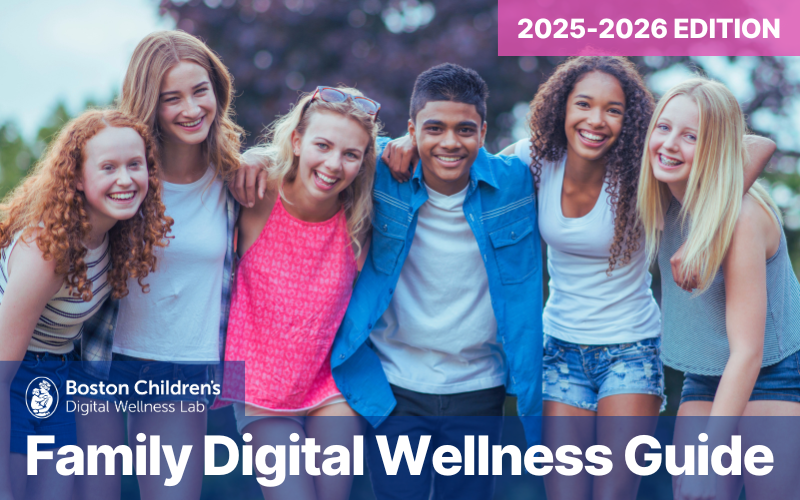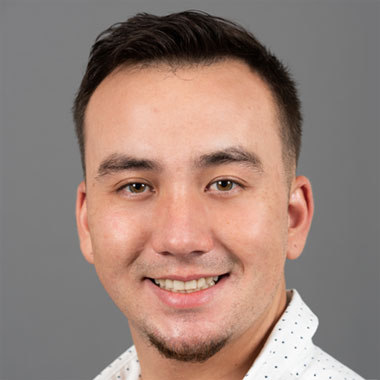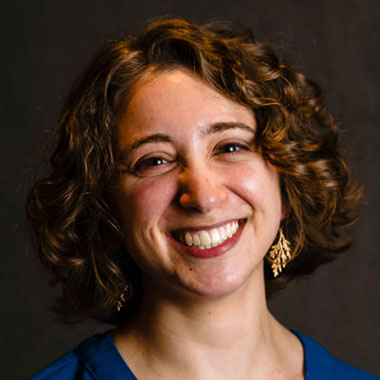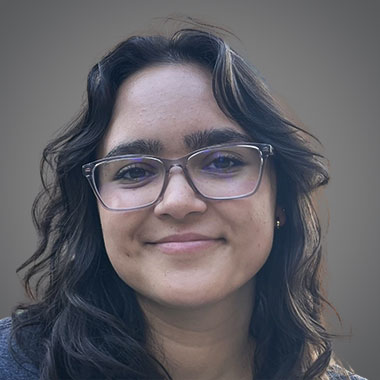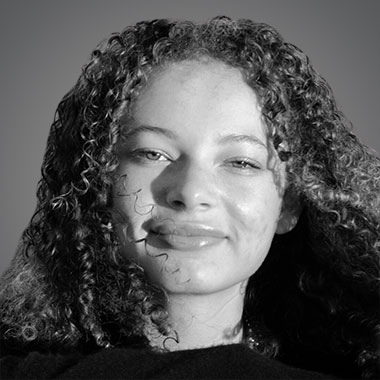2024 Impact Report
Beyond the Headlines
RESEARCH
INITIATIVES & RESOURCES
TEAM & SUPPORTERS
FINANCIALS
LOOKING AHEAD
Beyond the Headlines: What Kids Need in Today’s Digital World


A message from our Founder & Director, Michael Rich and our Executive Director, Cori Stott
In 2024, as new tech regulations and school bans made headlines, young people shared their unique perspectives. We spent the year listening, researching, and uncovering what truly supports kids in building healthy digital habits. What we found may surprise you.



Today’s reality
27%
of children/teens who use Instagram were on the platform before age 13, even though most social media platforms do not allow children under the age of 13 to create accounts
Carter et al., 2023
73%
of adolescents said they started gaming between 5 to 10 years old, raising questions about the role of gaming in child and adolescent development
Bickham, et.al., 2024
64%
of U.S. teens reported accessing news at least once a week from social media, with YouTube cited as the most popular social media news site
Wronski, 2019
What kids and parents are saying
69%
of U.S. parents of teens say being a teenager today is harder than it was 20 years ago, citing social media and technology as the top reasons
Pew Research Center, 2023
78%
of teens indicated that they agree with their parents’ rules or expectations for using GenAI
Bickham, et.al., 2024
68%
of LGBTQ youth say they have found affirming spaces online
The Trevor Project, 2023; Gardner, 2024
Research
Informing a healthy digital future
At the Digital Wellness Lab, we believe that decisions about technology and digital media should be guided by science, rather than emotion. Our research focuses on how digital experiences—with an emphasis on social media, video games, and artificial intelligence—affect the mental, social, and emotional wellbeing of young people. By investigating these impacts through rigorous, multidisciplinary research, we provide insights that aim to shape a digital environment that prioritizes youth health and development.
Our studies explore a range of topics critical to understanding young people’s digital lives, including the effects of social gaming on connection and loneliness, the role of AI in shaping youth experiences, and how social media influences body image and activism. Through our work as an independent lab—and in collaboration with others in the field—we are identifying key trends, risk factors, and opportunities to foster healthy and safe interactions.
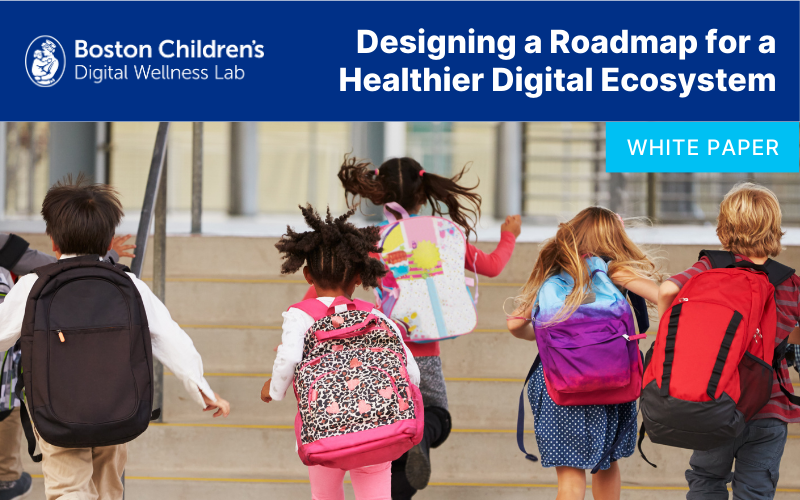
FEB 2024
Designing a Roadmap for a Healthier Digital Ecosystem
In December 2023, the Digital Wellness Lab gathered 60 experts from various fields for a workshop co-hosted by Pinterest, with the goal of defining “digital wellness” for youth from birth to young adulthood. The findings are outlined in this white paper.
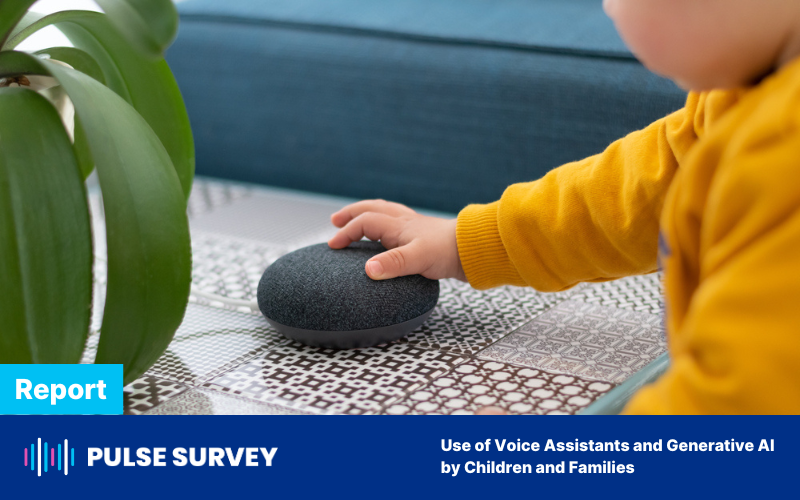
FEB 2024
Family Use of Voice Assistants and Generative AI
In this Pulse Survey, we asked parents of children ages 3 to 12 about trends in Voice Assistant use, including household dynamics, relationships, and impact on children’s development. We also explored their experiences with and attitudes about GenAI.
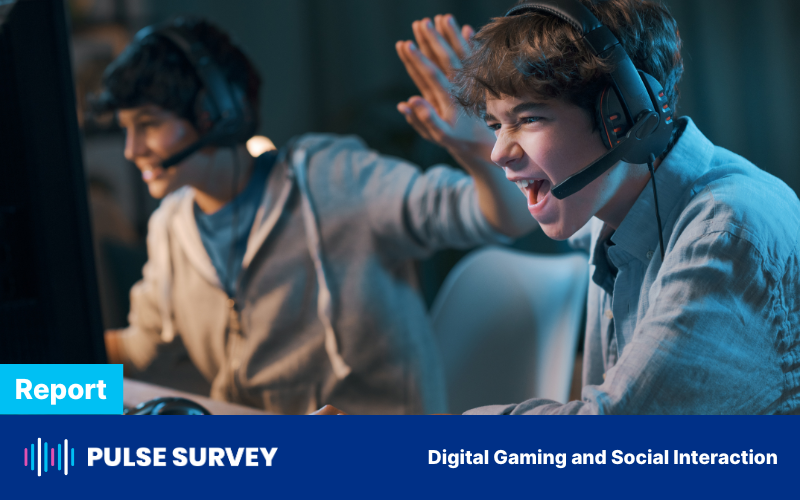
APR 2024
Digital Gaming and Social Interaction
Digital gaming has become one of the most popular forms of screen media, and online games offer spaces for teens to socialize with friends and peers. In this Pulse Survey, we asked over 1,400 U.S. adolescents (ages 13-17) about their social video game play.
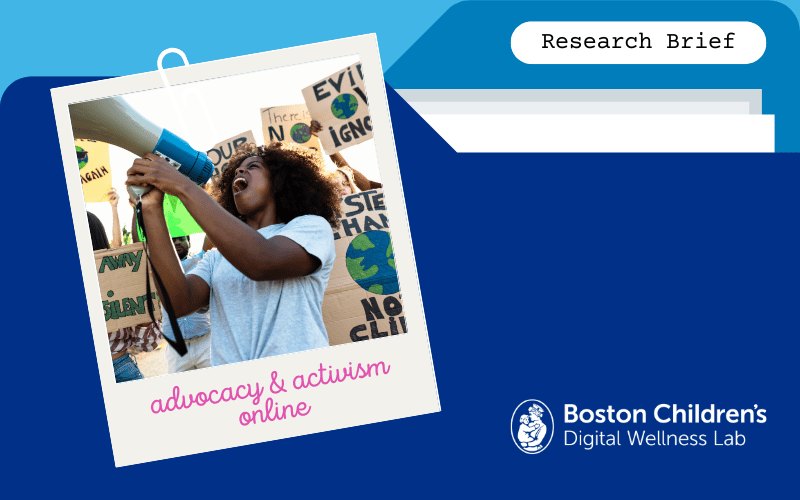
MAY 2024
Advocacy and Activism Online
In this research brief, we look at the growing role of youth advocacy and activism online, including how young people engage with social causes and the potential long-term impacts on their mental health, sense of identity, and future activism.
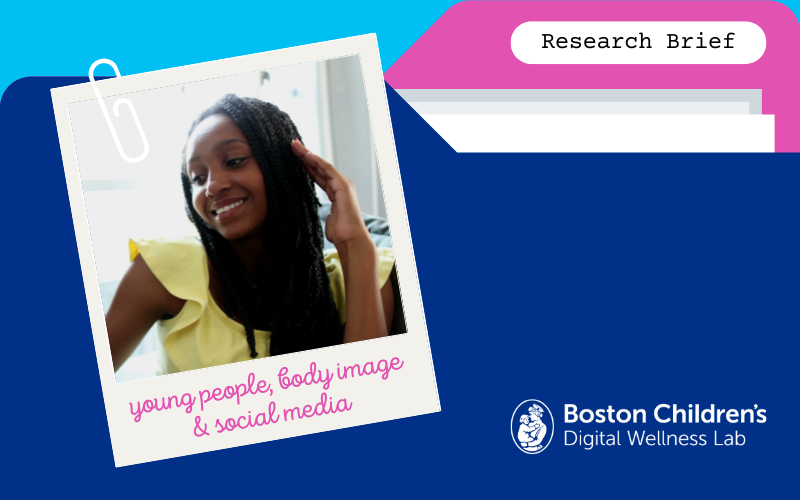
JUN 2024
Young People, Body Image and Social Media
This research brief explores how social media influences body image and social comparison among young people, as well as strategies to help protect children from its harmful effects and promote healthier digital experiences.
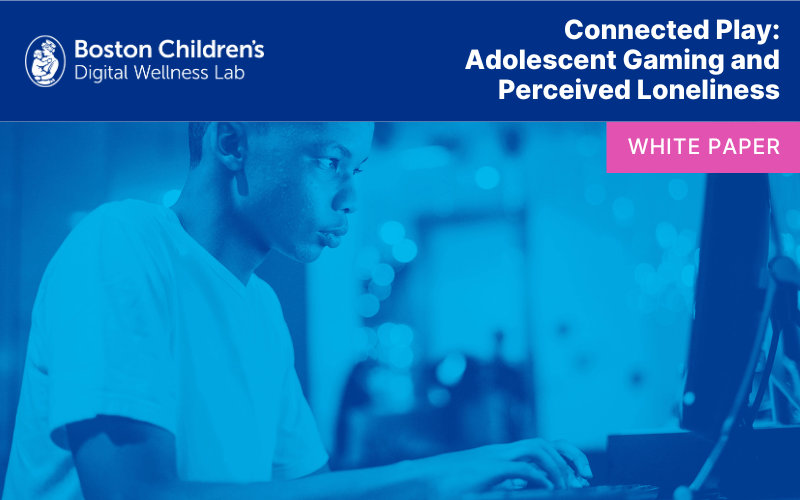
SEP 2024
Adolescent Gaming and Perceived Loneliness
In this white paper, commissioned by the Ruderman Family Foundation, we examine the relationships between perceived loneliness and diverse social engagement during online gaming among adolescents.
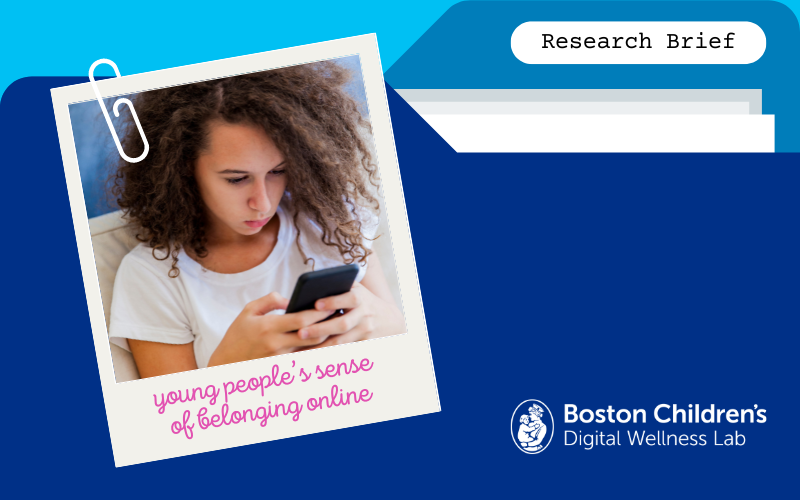
OCT 2024
Young People’s Sense of Belonging Online
This research brief examines how online communities help to shape young people’s sense of belonging, highlighting both the positive and negative impacts these connections can have on their wellbeing.
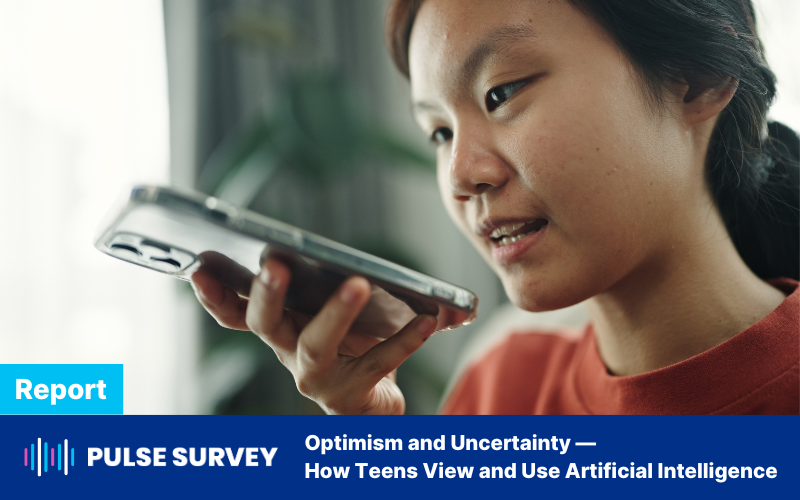
NOV 2024
Optimism and Uncertainty—How Teens View and Use Artificial Intelligence
In this Pulse Survey of 1,400 teens (ages 13-17), we explored their use of AI tools like Voice Assistants and Generative AI, highlighting gaps in access, knowledge, and the potential for developing ethical guidelines to help youth navigate AI responsibly.
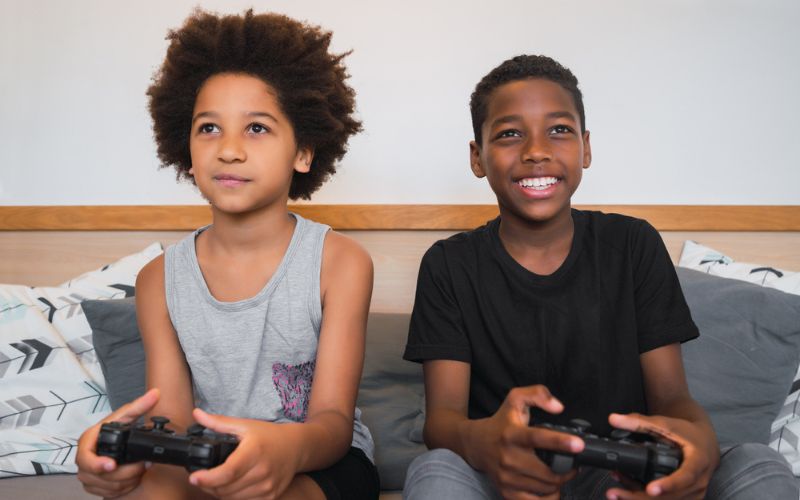
ONGOING
Studying the social gaming experiences of children and teens
This continuing study, in collaboration with the University of Michigan and the University of Washington, seeks to understand gameplay, emotional drivers, and decision-making of children and teens (ages 8-14) playing popular multiplayer games like Roblox, Minecraft, and Fortnite.
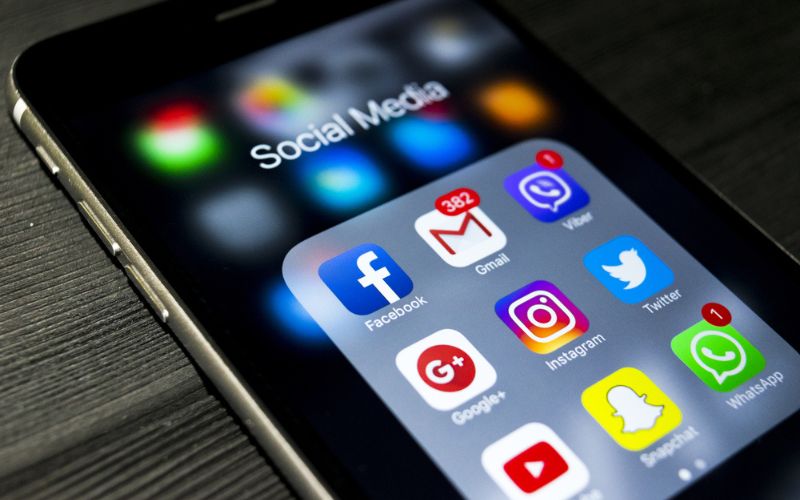
ONGOING
Understanding How Social Media Impacts Young Adolescents
This study, in collaboration with Wellesley College, will shed light on important components of young teens’ (aged 13-15) social media ecology as well as offer proof-of-concept of the multi-method approach needed to enable funding to include larger, more geographically dispersed adolescent samples.
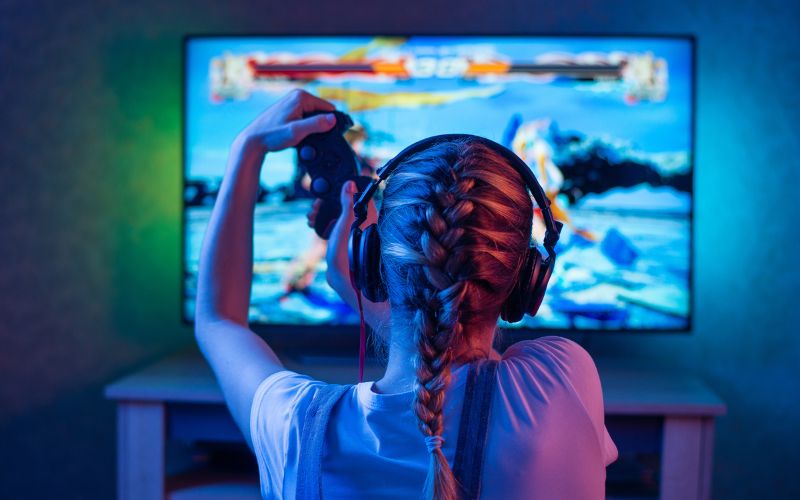
ONGOING
Investigating Commonalities Among Kids Experiencing PIMU
In collaboration with the Clinic for Interactive Media and Internet Disorders (CIMAID), this project reviews clinical charts to identify key risk factors and commonalities among patients experiencing problematic media use (PMU).
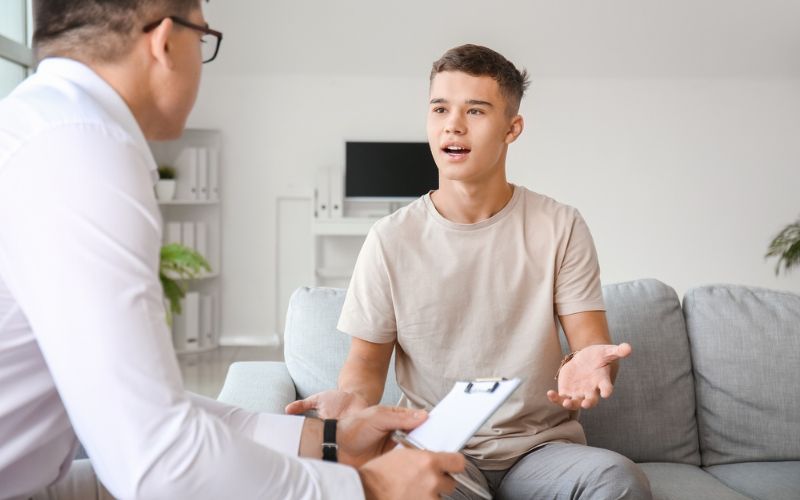
ONGOING
Helping Clinicians Identify and Treat PIMU
In an effort to support early intervention and care, the Lab is collaborating with Point32 Health to develop a screener and intervention guidelines to help clinicians identify and treat pediatric problematic media use (PMU).
“Our civility convening with the Digital Wellness Lab drove a business strategy decision to build out our youth voice work, resulting in the hiring of a Youth Engagement Program Manager and the launch of the Roblox Youth Council.”
TAMI BHAUMIK, Vice President of Civility & Partnerships at Roblox
Initiatives & Resources
Advancing digital wellness through action and insight
From collaborative initiatives to accessible resources, the Lab is committed to empowering young people, caregivers, educators, policymakers, clinicians, and industry leaders with the knowledge and tools needed to create a healthier digital ecosystem. In 2024, we expanded our efforts by strengthening partnerships, amplifying youth voices, and providing evidence-based guidance to foster meaningful change in how young people engage with technology.
Initiatives

A Healthier Internet for Youth
In its first year, over 45 signatories and advisors joined our Inspired Internet Pledge. We hosted three convenings, published five resources, and achieved global traction—and look forward to our continuing collective efforts to create a safer, healthier internet for all, especially young people.

Amplifying Teen Voices
Our 2024-25 Student Advisory Council brings together 17 high school students, five returning student mentors, and six student research advisors to engage on topics including school cell phone policies, social media’s effects on mental health, and media literacy.

Cross-Harvard Collaboration
We launched the Youth & Interactive Media Coalition (YIMC) to facilitate information sharing and collective amplification of efforts across the Harvard ecosystem, aiming to advance progress on issues impacting youth in the digital age.
Resources
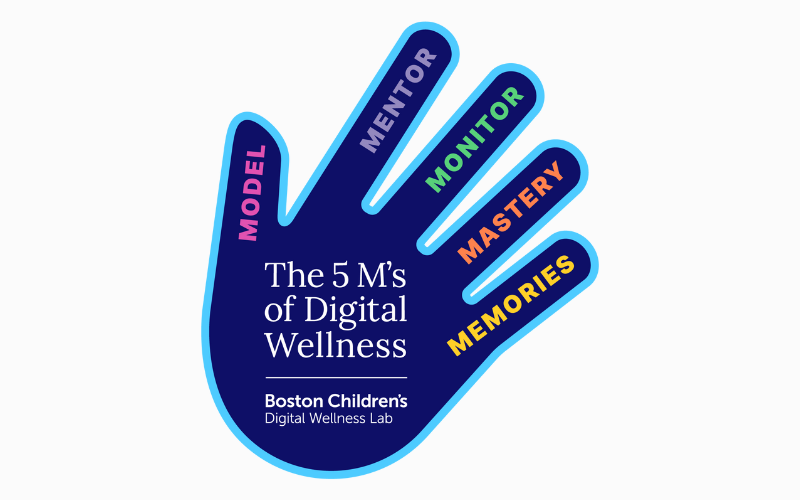
RESOURCE
The 5M’s of Digital Wellness
Technology is a powerful tool, and kids need guidance to use it safely and purposefully. Our 5 M’s of Digital Wellness—also available in Spanish—offer practical strategies to support their physical, mental, and social-emotional health.
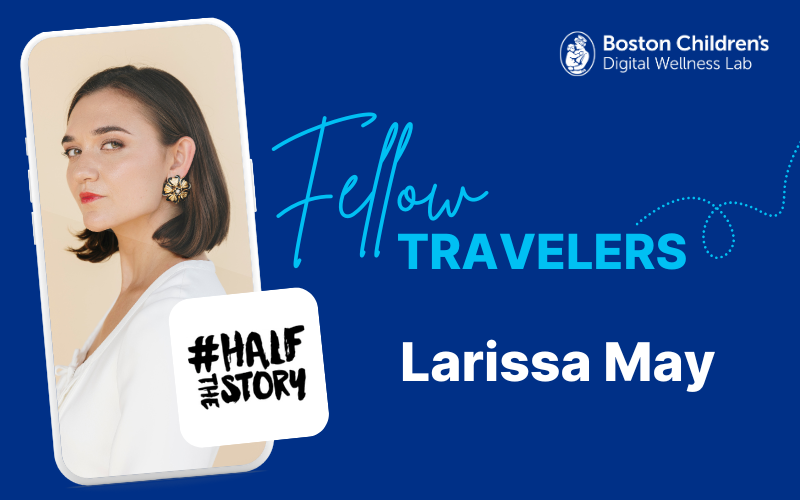
RESOURCE
Fellow Travelers
Creating a healthier digital experience requires collaboration. No single organization can tackle this challenge alone. Launched in 2024, our Fellow Travelers blog series highlights experts in digital wellness from around the world, sharing diverse perspectives and expertise to support young people and their families.
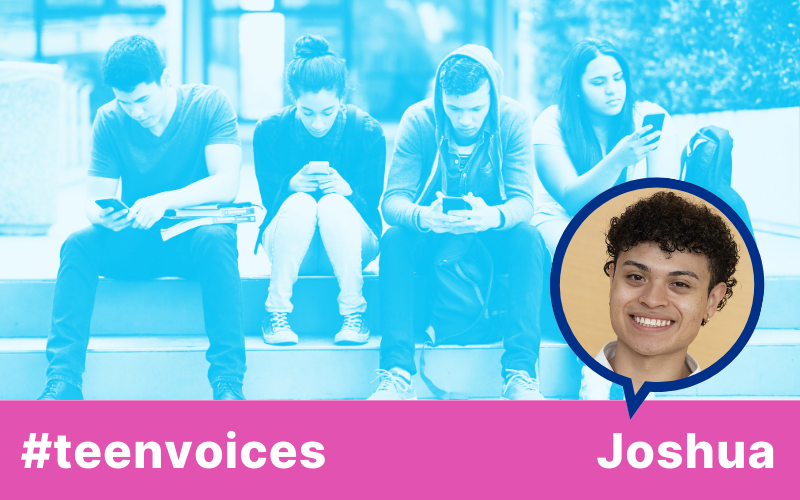
RESOURCE
Teen Voices
We’re fortunate to work with engaged high school students from around the country. Our blog series, Teen Voices, gives members of our Student Advisory Council a platform to share their perspectives on how digital and social media impact mental, physical, and social health—both positively and negatively.
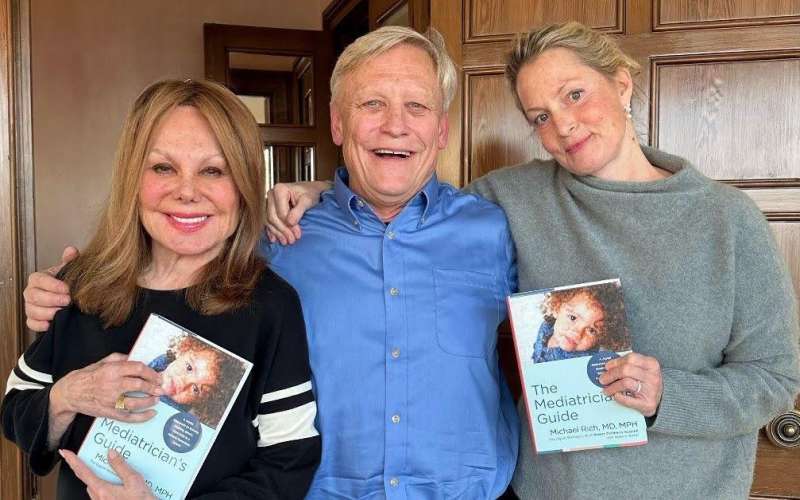
RESOURCE
The Mediatrician’s Guide
Dr. Michael Rich, the Lab’s founder and director, published a new book sharing key research and insights on raising healthy, smart, and kind kids in a screen-saturated world. Blending decades of expertise with personal experience, the book offers research-backed strategies to help families navigate screen time with confidence and peace of mind.
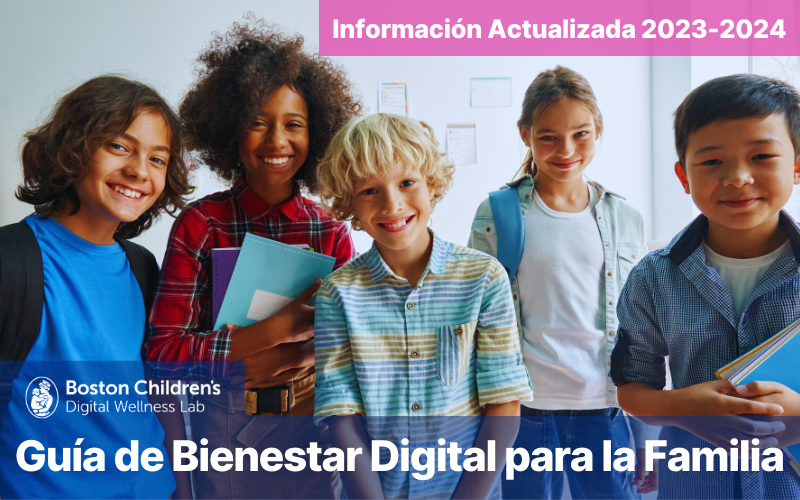
RESOURCE
Guía de Bienestar Digital para la Familia
In 2024, we launched the Spanish edition of our Family Digital Wellness Guide. This resource helps parents and caregivers foster healthy tech habits for kids of all ages. By making it accessible in Spanish, we aim to support even more families in navigating today’s digital world.
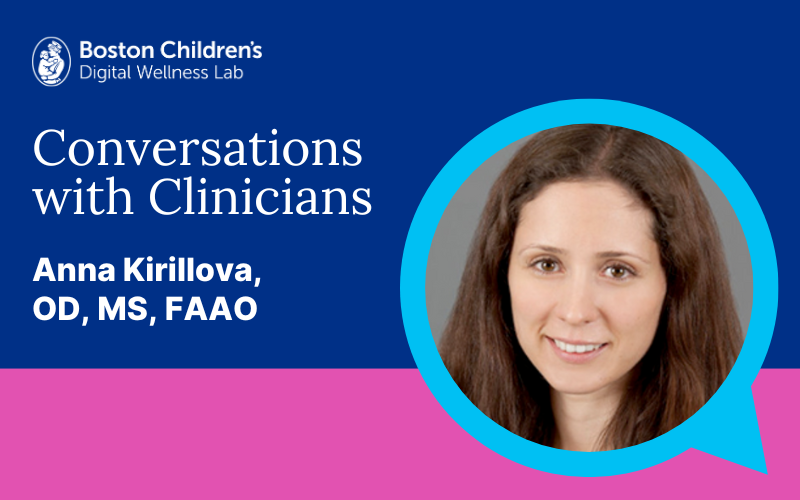
RESOURCE
Conversations With Clinicians
Being part of Boston Children’s Hospital and Harvard Medical School provides the Lab with unique access to the knowledge and insights of world renowned pediatric health experts. Our blog series, Conversations with Clinicians, explores their insights on care strategies and ideas for improving the digital ecosystem to better support and protect young users.
Publications, Presentations & Press
Leading the conversation on digital wellness
In 2024, we expanded our reach and influence through published research, media engagement, and global presentations. Our work appeared in top academic journals and was featured by major outlets including The New York Times, The Atlantic, USA Today, Good Morning America, CBS News, and PBS, influencing global conversations on digital wellness. From exploring the impacts of social gaming to offering guidance on managing teen phone use, our insights have deepened understanding of how technology impacts youth.
At the Digital Wellness Lab, we believe that a healthier digital ecosystem is a collaborative effort. By fostering robust online and in-person discussions and connecting with peers worldwide, we bridged the gap between research, industry, and public understanding, ensuring that our work drives meaningful action in the digital space.
Beyond our publications and media engagements, our team shared their insights at over 20 international conferences and events. From the World Economic Forum in Davos to SXSW EDU 2024, we addressed critical issues such as online safety, youth digital wellbeing, and responsible AI. Through panels, keynotes, and workshops, we reached a diverse audience of policymakers, educators, clinicians, and industry leaders, advancing the conversation on building a healthier digital world for young people.
“After attending this presentation about digital wellbeing, I plan to focus much more on fixing the underlying problems causing a child’s need for excess screen use and avoiding shame and punishment.”
PEDIATRICIAN
Presentations
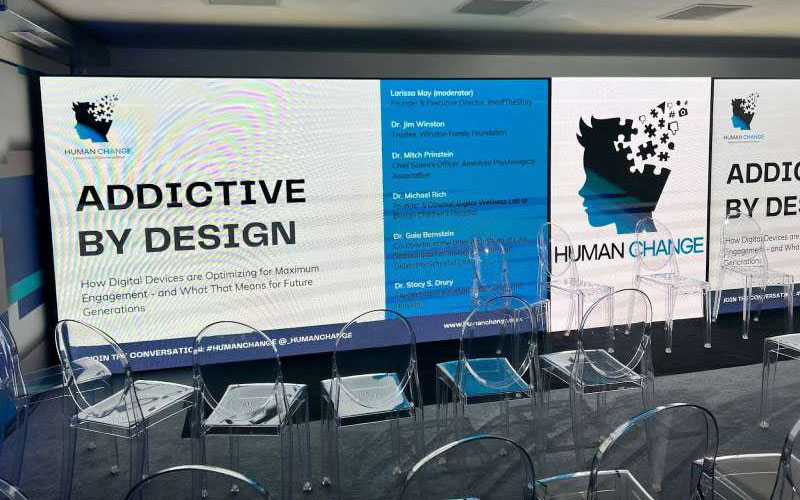
JAN 2024 | DAVOS, SWITZERLAND
World Economic Forum
We joined decision-makers and experts from across the globe for four days at the Human Change House alongside the World Economic Forum to discuss youth mental health, digital wellness, and tech’s impacts on child development, sharing our research and clinical insights with leaders from across industries on building a healthier digital future.
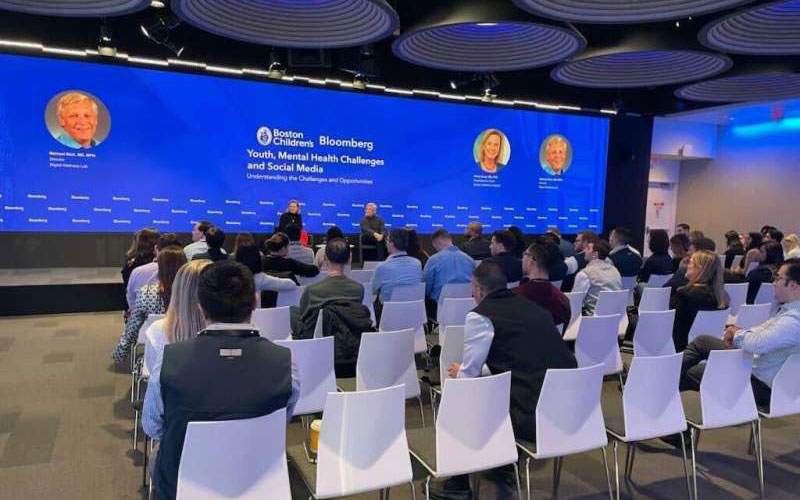
JAN 2024 | NEW YORK, NY
Bloomberg Forum
The Lab’s Dr. Michael Rich and Dr. Stacy Drury of Boston Children’s Hospital shared insights on youth mental health with the Bloomberg community, highlighting research on digital media’s impact on adolescents and clinical experiences in addressing problematic media use, including from the Clinic for Interactive Media and Internet Disorders.
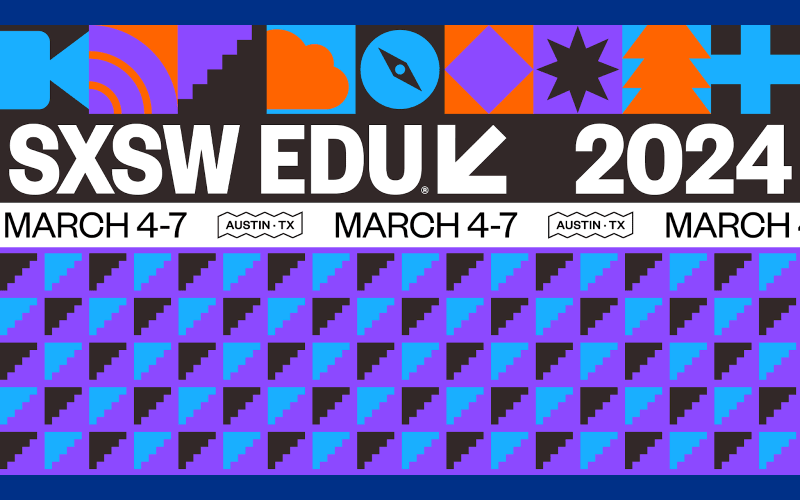
MAR 2024 | AUSTIN, TX
SXSW EDU 2024
The Lab co-hosted a panel with Roblox on building a safer digital future, sharing expert recommendations on policy, design, and education. Dr. Michael Rich also joined Riot Games and the Joan Ganz Cooney Center at Sesame Workshop on a panel to discuss fostering good digital citizenship through online interactions.
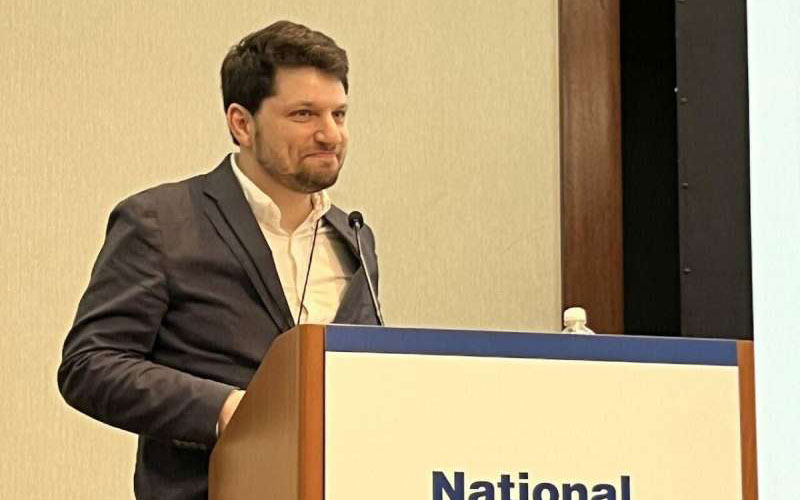
MAR 2024 | WASHINGTON, D.C.
National PTA Thought Leader Convening
Clinical Research Manager Sam Schwamm delivered a keynote presentation on the Lab’s research on youth mental health and technology, highlighting how parental modeling of tech rules leads to healthier screen habits, reduced media use, and lower reported rates of problematic media use among teens.
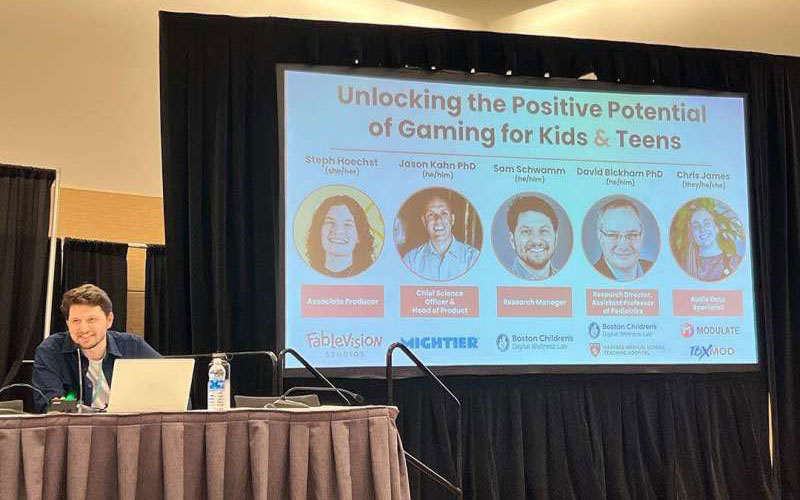
MAR 2024 | BOSTON, MA
PAX East Gaming Conference
The Lab joined experts in research, tech, and game design to explore fostering positive gaming experiences for youth. On the panel, “Unlocking the Positive Potential of Gaming for Kids and Teens,” the Lab’s Sam Schwamm and Dr. David Bickham spoke alongside leaders from Mightier, FableVision, and Modulate.
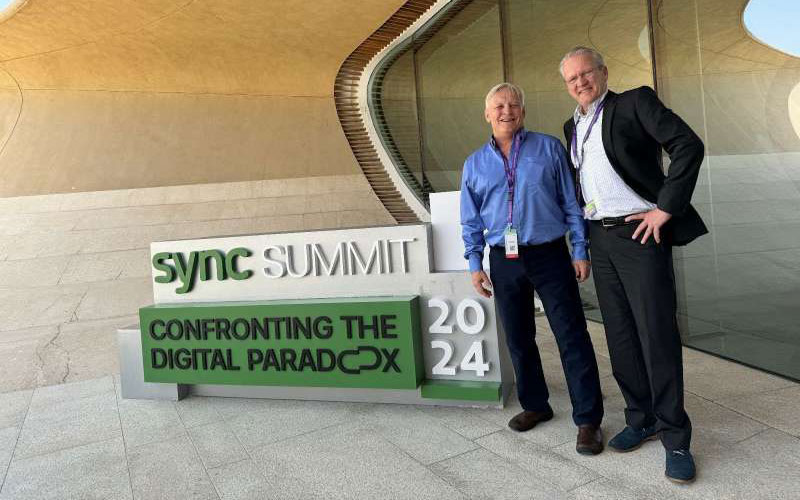
MAY 2024 | DHAHRAN, SAUDI ARABIA
Sync Digital Wellbeing Summit
At the second annual Sync Digital Wellbeing Summit, Dr. Michael Rich joined experts from around the globe to discuss fostering healthier relationships with tech and digital media. The Lab’s research and Inspired Internet Pledge shaped key conversations on creating a balanced, supportive digital ecosystem for the future.
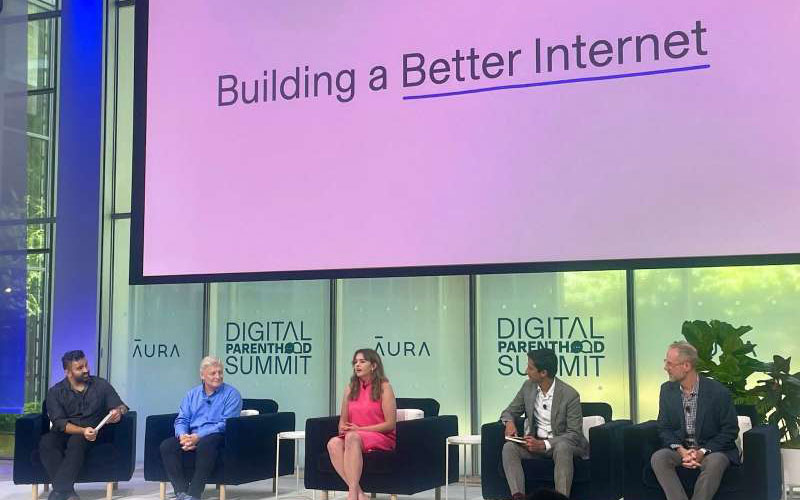
JUN 2024 | NEW YORK, NY
Aura’s Digital Parenthood Summit
Our team joined other experts from across the technology and media ecosystem to discuss Building a Better Internet for kids. Dr. Michael Rich co-led a panel focused on discussing ways to design platforms with youth wellbeing in mind and to empower parents to help kids navigate the digital world safely and confidently.
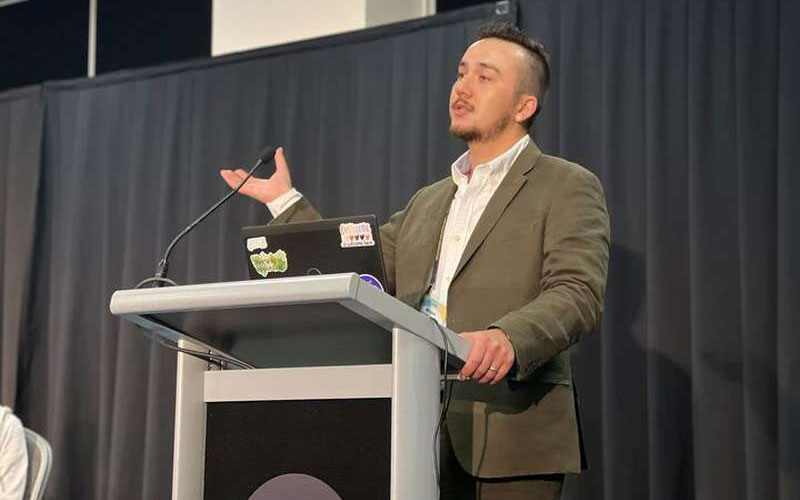
JUN 2024 | BRISBANE, AUSTRALIA
International Communication Association Conference
Lab Scientist Dr. Michael Carter presented research co-authored with Dr. David Bickham on a new framework for studying online environments. Their work explores how platform design, user behavior, and content shape distinct digital spaces on YouTube, Snapchat, TikTok, and Instagram.
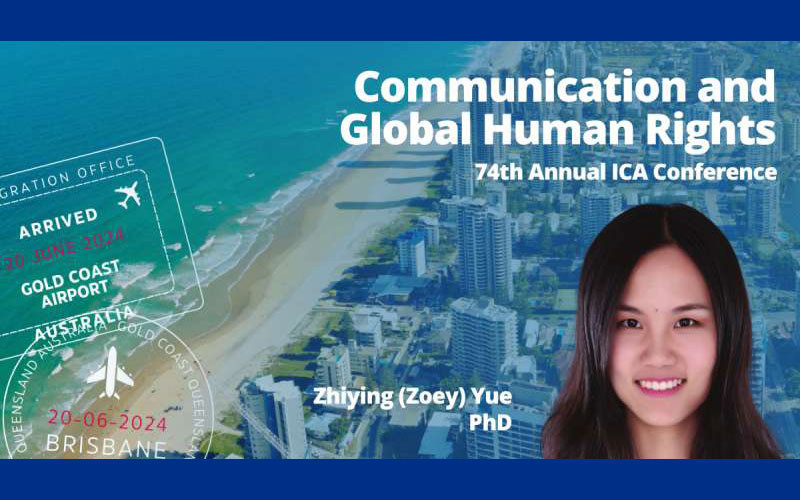
JUN 2024 | BRISBANE, AUSTRALIA
International Communication Association Conference
Lab Scientist Dr. Zhiying (Zoey) Yue presented her paper on how patient-provider communication and health-related social media use evolved throughout the COVID-19 pandemic. Her study highlights how perceived communication gaps may drive increased social media use for health information, offering key insights for the future of digital healthcare.
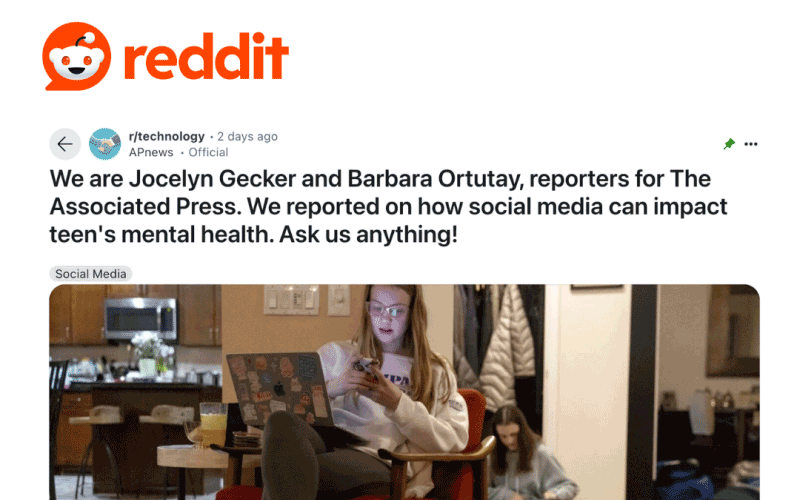
JUN 2024 | ONLINE
Reddit AMA
Lab Research Director Dr. David Bickham and Medical Librarian Kaitlin Tiches joined AP reporters for a Reddit AMA on teens and social media. They answered questions on app impact, changing research, and parenting in a digital world. Check out their insights and practical guidance here.
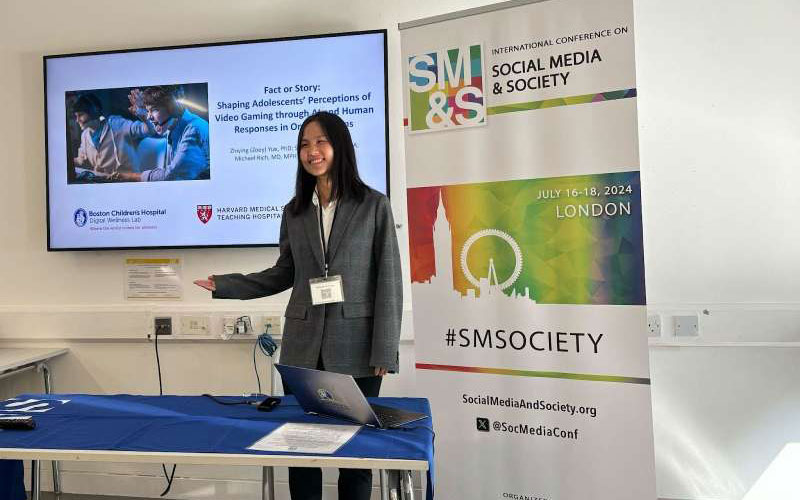
JUL 2024 | LONDON, UK
International Conference on Social Media & Society
Lab Scientist Dr. Zhiying (Zoey) Yue presented two papers—one on how AI and human responses in online forums shape youth perceptions of video gaming, and another on social media’s role in health communication. Her presentations sparked insightful discussions among top social media researchers worldwide.
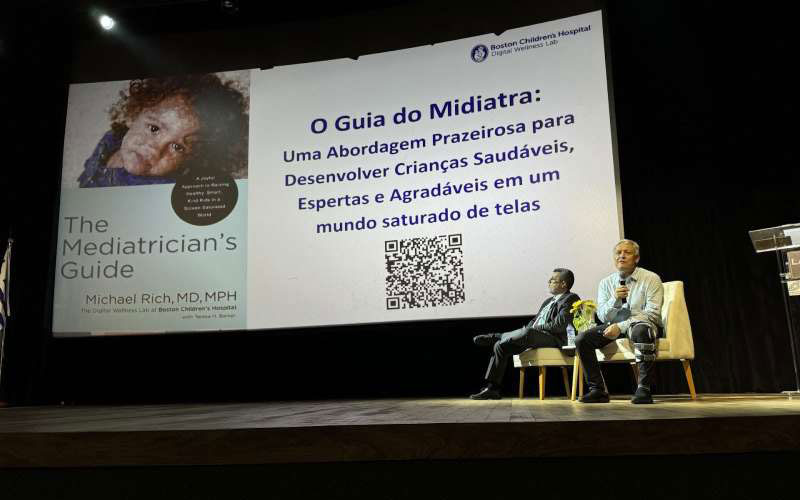
JUL 2024 | RIO DE JANEIRO, BRAZIL
International Congress on Autism Spectrum Disorder
Dr. Michael Rich presented a workshop, “Management of Media Use by Children and Young People with Autism”, exploring how digital media impacts autistic youth and sharing strategies for caregivers and clinicians to support healthy media habits, contributing to the global dialogue on youth digital wellness.
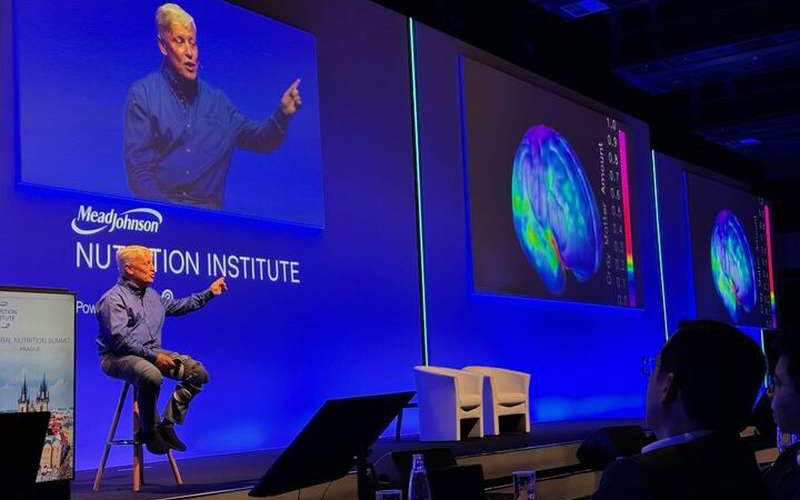
JUL 2024 | PRAGUE, CZECH REPUBLIC
Global Nutrition Summit
Dr. Michael Rich led conversations at Mead Johnson Nutrition Institute’s Global Nutrition Summit that challenged the clinicians in attendance to consider a child’s digital diet alongside their physical diet and to address the messages they receive about body image and dieting in online spaces.
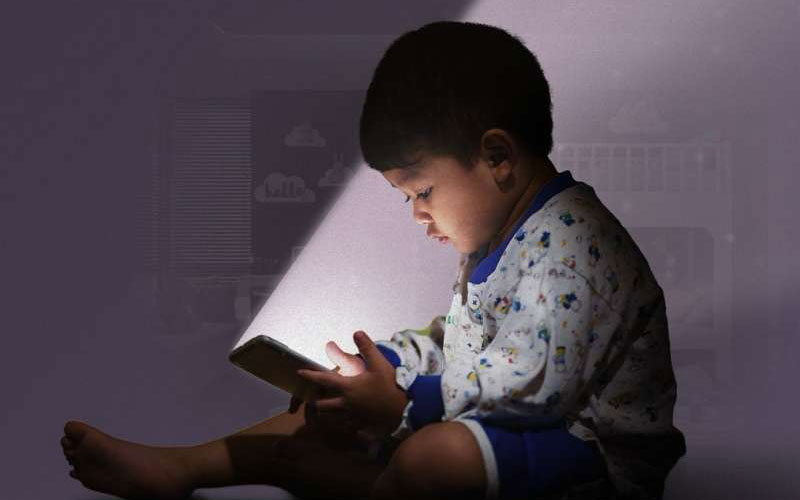
SEP 2024 | VIRTUAL
Harvard T. H. Chan School of Public Health Studio
Dr. David Bickham joined experts for a panel discussion titled “The Digital Lives of Children,” focused on the impacts of screen time on kids’ health and play. Alongside leaders from UCSF and the National Black Child Development Institute, he shared research and strategies for fostering a healthier digital environment for kids.
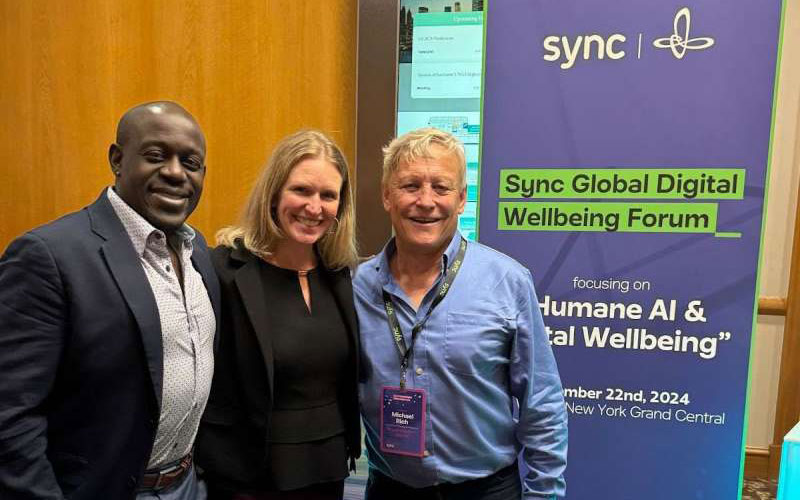
SEP 2024 | NEW YORK, NY
Sync Digital Wellbeing Forum
Dr. Michael Rich spoke at the Sync Global Digital Wellbeing Forum, on “Humane AI & Digital Wellbeing.” Joined by leaders from WHO, ITU, and Yale University, he emphasized the need for global collaboration to ensure ethical AI and responsible tech practices that support wellbeing and protect individual rights.
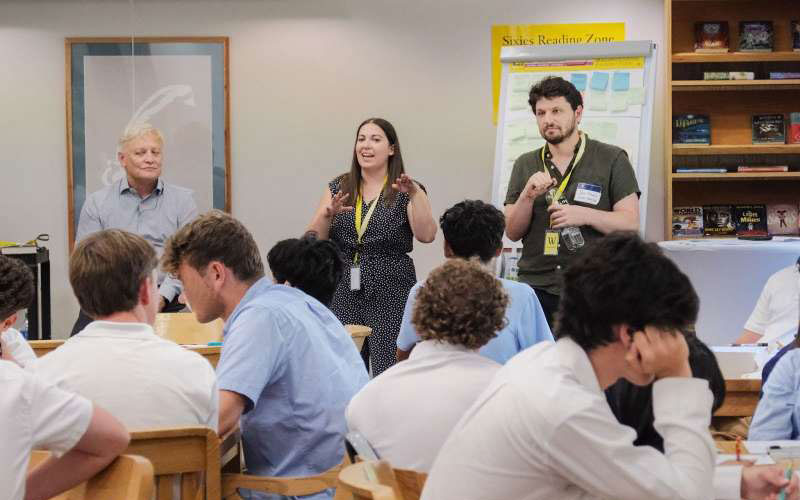
SEP 2024 | SANDY, UT
Waterford School Cell Phone Policy Workshop
Nicole Powell, Kaitlin Tiches, Sam Schwamm, and Dr. Michael Rich led workshops engaging students, faculty, and parents in open conversations about healthy media habits. They explored social media use, screen time management, and how families and schools can work together to help kids thrive in a digital world.
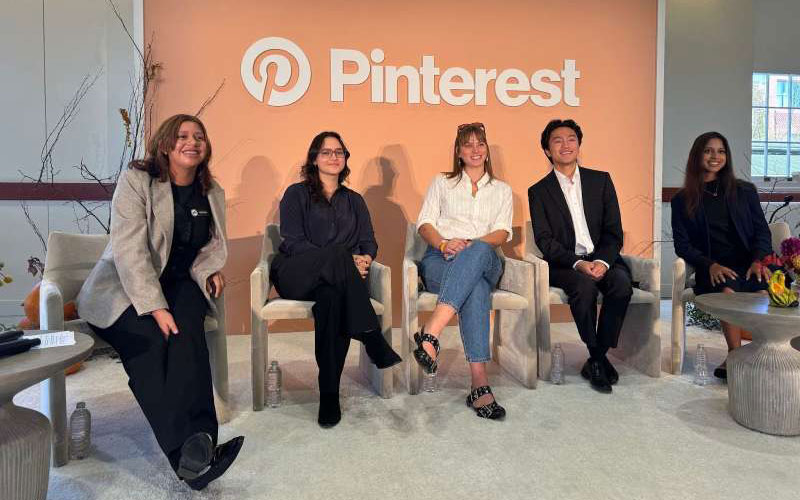
OCT 2024 | WASHINGTON, D.C.
Youth Online Safety & Wellbeing Youth Panel
Lab Student Researcher Alicia Owens took part in a youth panel hosted by Pinterest, discussing youth safety and wellbeing online. This is a key focus of our research, and we were thrilled to see Alicia contributing to such an important conversation.
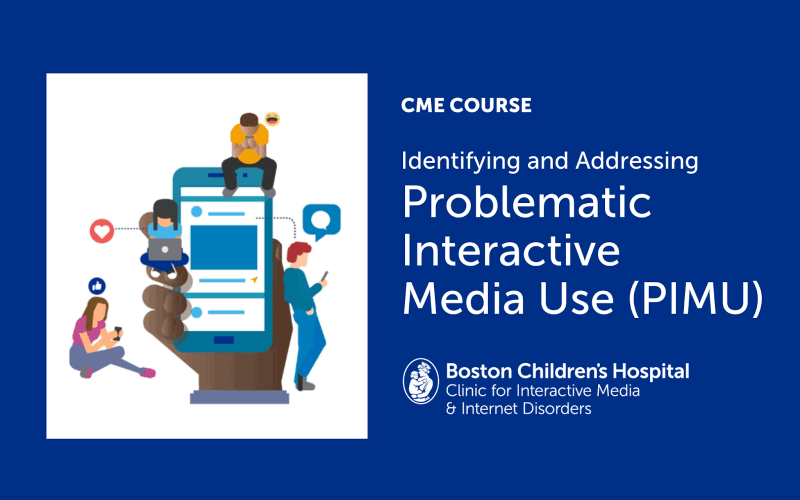
OCT 2024 | VIRTUAL
Identifying and Addressing Problematic Interactive Media Use
Clinicians from the Clinic for Interactive Media and Internet Disorders (CIMAID) and the Digital Wellness Lab led a Continuing Medical Education (CME) course addressing methods for identification and treatment of Problematic Interactive Media Use (PIMU). With insights ranging from screen privacy to preparing youth for online risks, this learning event showcased essential resources for those supporting young people in today’s digital age.
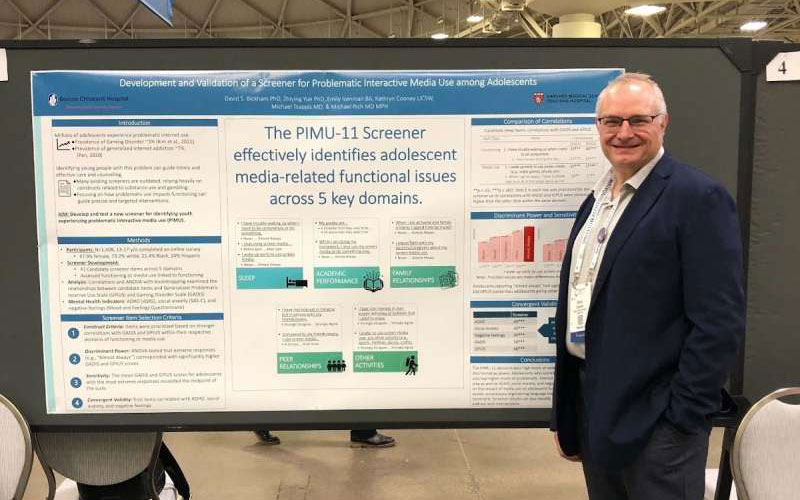
OCT 2024 | MINNEAPOLIS, MN
American Public Health Association Annual Meeting
The Lab’s Dr. David Bickham presented a poster, “Development and Validation of a Screener for Problematic Interactive Media Use Among Adolescents,” at the APHA 2024 Annual Meeting and Expo introducing the PIMU-11 screener that the Lab has been developing alongside clinicians from CIMAID.
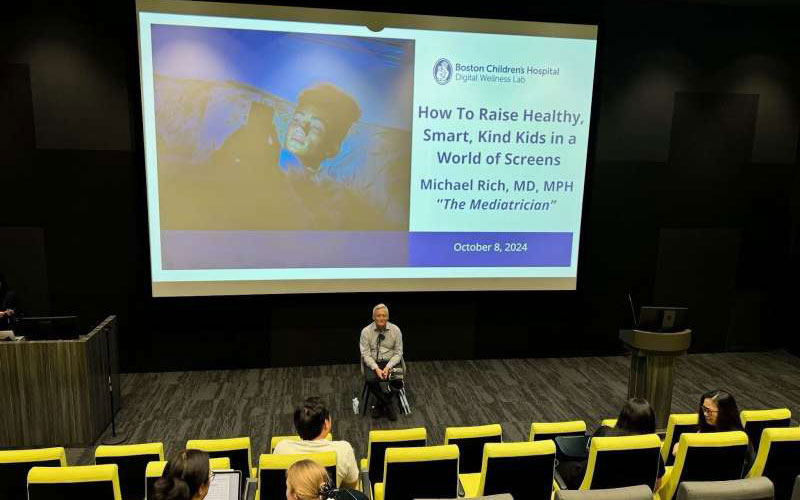
OCT 2024 | SINGAPORE
Nanyang Technological University
In addition to leading discussions on digital wellbeing at Nanyang Technological University, Dr. Michael Rich met with Singapore’s Ministry of Digital Development and Information, and engaged with students and parents at United World College of South East Asia to explore ways to create a healthier internet for young people.
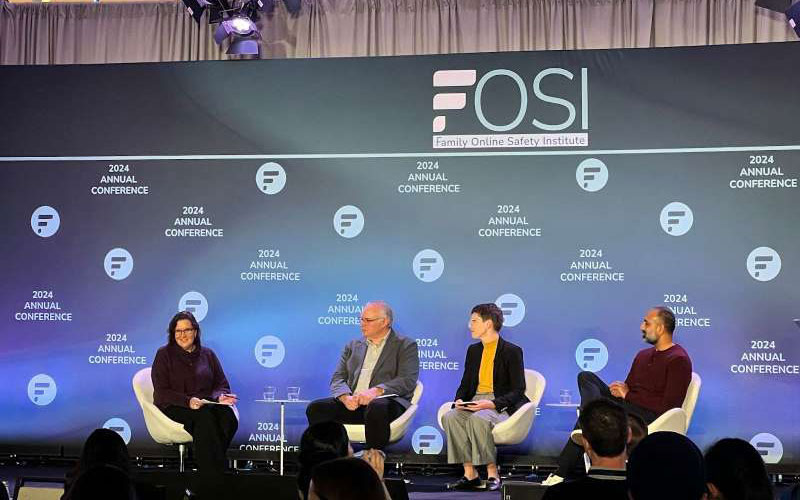
DEC 2024 | WASHINGTON, D.C
FOSI Annual Conference
At FOSI 2024, the Lab’s Executive Director Cori Stott moderated a panel on safe digital navigation, while Dr. David Bickham spoke on a panel focused on AI and parenting, joining global leaders and innovators to discuss online safety, digital wellness, and youth empowerment.
Our Team & Supporters
Strengthening our expertise in digital wellness
In 2024, we expanded our team to include two new full-time clinical research team members, a new research manager and two research interns. We are also so proud of our two doctoral fellows, Zhiying (Zoey) Yue, PhD and Michael Carter, PhD, who were promoted to Scientists at Boston Children’s Hospital and Instructors of Pediatrics at Harvard Medical School. We honor everyone’s accomplishments and the dedication of our entire team to fostering healthier digital environments for children and families.
Collaborating to support kids online
Our team actively contributes to international advisory boards and initiatives, ensuring that research and clinical insights help shape policies, products, and protections that support young people in our increasingly digital world. Our participation includes working alongside industry leaders, policymakers, and child safety advocates to build a safer, more thoughtful digital ecosystem.
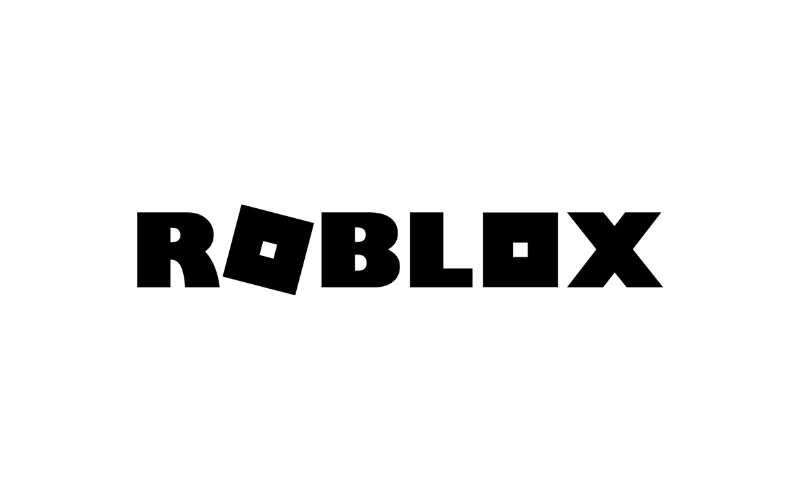
As part of their commitment to digital civility, Roblox’s Trust and Safety Advisory Board is composed of world-renowned digital safety authorities who convene to discuss Roblox’ progress on their Digital Civility Initiative.

The Google Kids Expert Advisory Group informs Google policies and practices related to products and features for kids, teens, and families, to support young people’s safety and wellbeing.

Snap’s Safety Advisory Board convenes regularly to share evidence-based feedback on safety-related policies, product features, and other related initiatives to support a healthier online experience for teens and young adults.
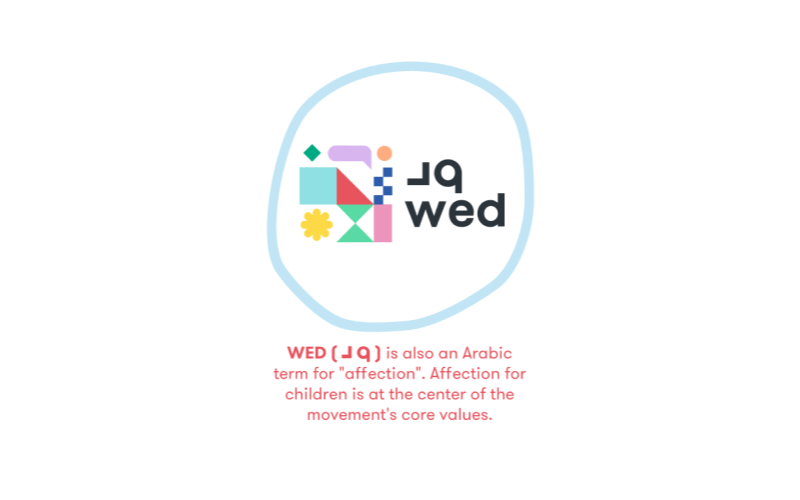
The Abu Dhabi Early Childhood Authority (ECA) Children’s Humanitarian Technology Group is an international group working to design a digital ecosystem that is healthier for children.
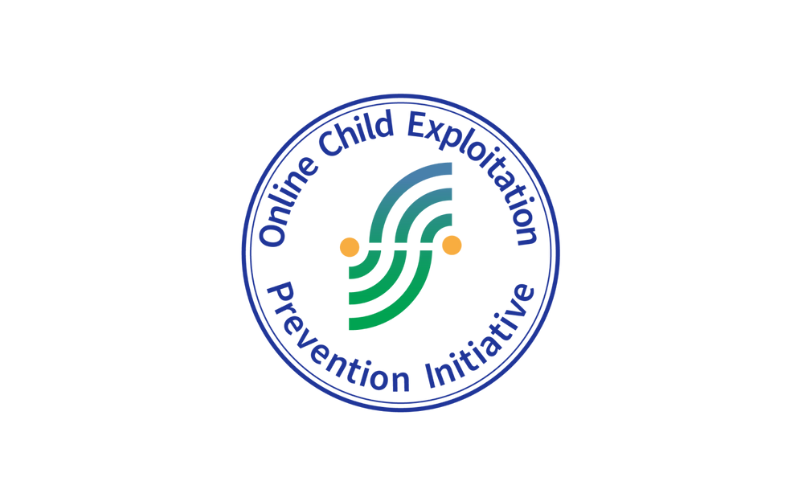
The Online Child Exploitation Prevention Initiative (OCEPI) by the Internet Crimes Against Children Task Force Program, consists of individuals and agencies specializing in efforts to prevent children from becoming victims of online sexual exploitation and abuse. Initiative members convene with an ongoing goal of working collaboratively to achieve a consistent and effective global prevention message.
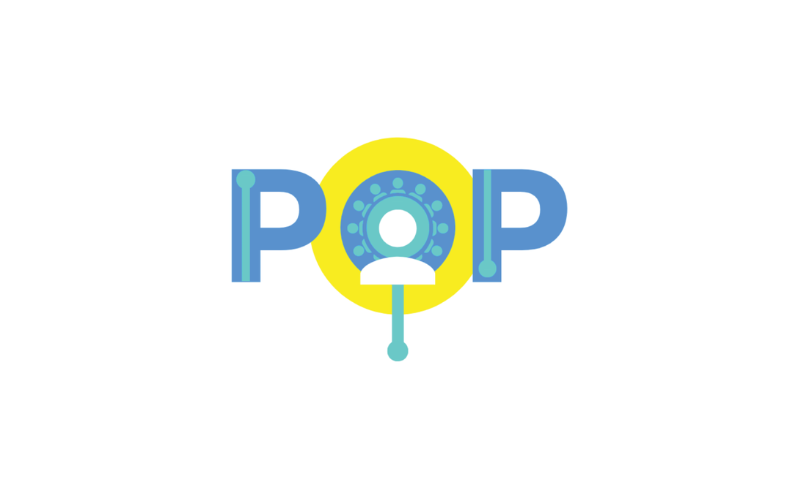
Protection through Online Participation (PoP), created by the UN Special Representative of the Secretary-General on Violence Against Children and International Telecommunication Union, is an intersectoral and collaborative initiative aimed at better understanding how children and young people use digital platforms to be safer. This initiative has started to map child protection services online, with examples drawn from 118 countries.
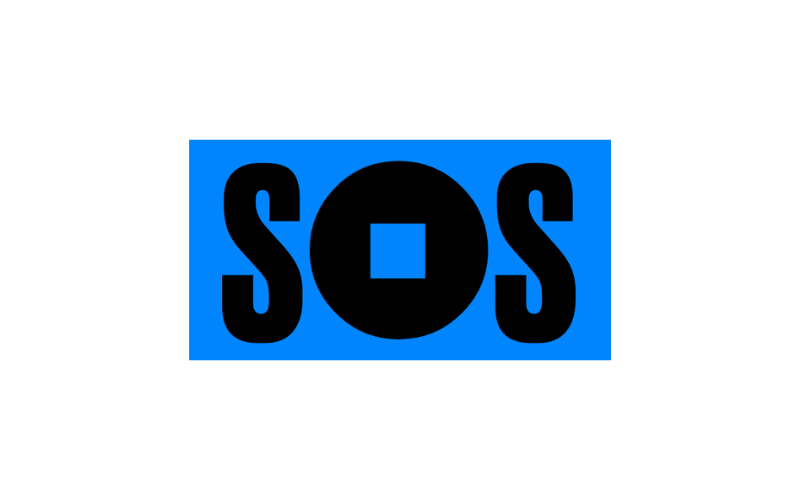
The Mental Health Coalition is embarking on a multi-year journey to transform youth mental health in the digital space via the Safe Online Standards for Kids’ Mental Health (S.O.S.) initiative by developing credible, data-driven standards for kids’ mental health on technology platforms.
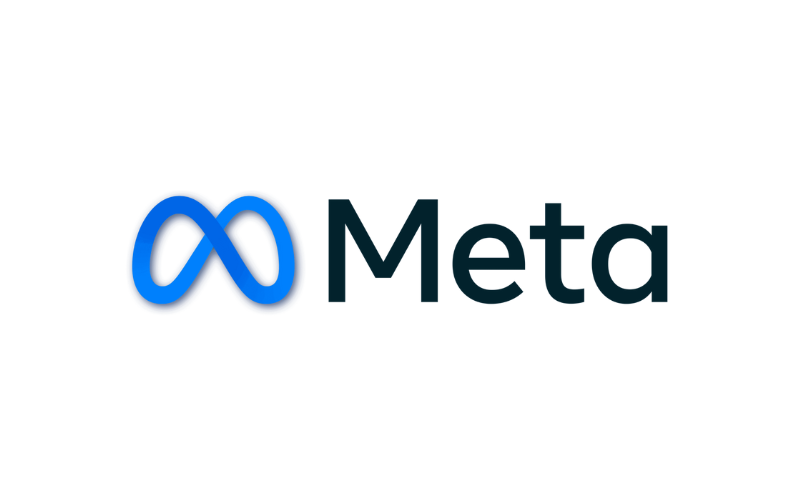
Meta’s Youth Safety Advisors, composed of a diverse, global group of experts in youth mental health and digital wellness, provides research-based information to support a focus on young people’s health, safety, and privacy in the development of features and policies.
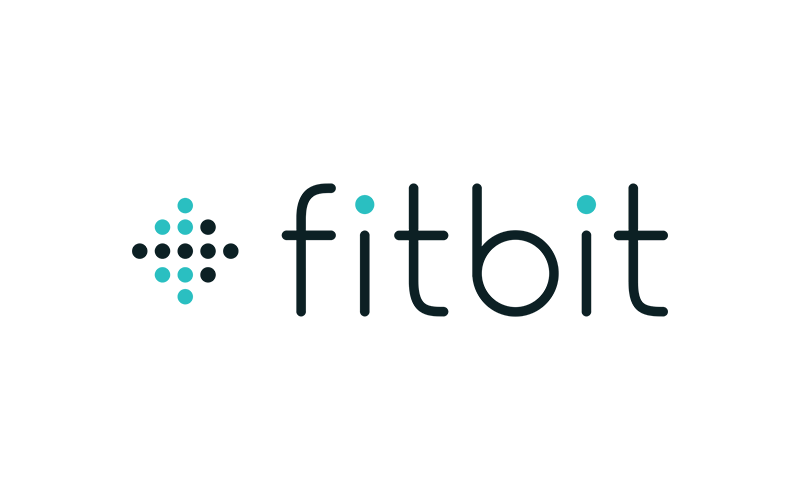
The Fitbit Youth Advisory panel provides research-based insights and suggestions to support design of activity tracking and smart watch technology that is healthy and safe for young people.
“While developing comprehensive safeguards for our features, our team incorporated guidance from the Digital Wellness Lab’s detailed research findings, helping to ensure that our services meet the highest standards and help families build safe and healthy digital habits.”
CATHERINE TEITELBAUM, Head of Family Trust at Amazon Kids
Engaging with our fellow travelers
In 2024, our team took part in events alongside experts and thought leaders in digital wellness. From summits on AI and education, to discussions on child safety and online wellbeing, these gatherings provided valuable opportunities to stay informed on emerging trends, connect with industry leaders, and contribute to conversations shaping the future of digital health. By participating in panels, workshops, and roundtable discussions, we deepened our understanding of the evolving digital landscape and strengthened collaborations that support a healthier digital environment for young people.
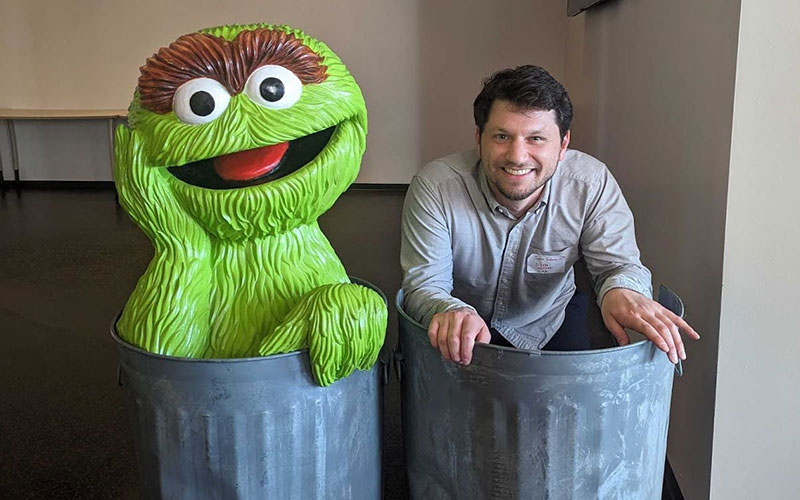
APR 2024 | NEW YORK, NY
Sesame Fellows & RITEC by UNICEF & LEGO Presentation
Lab Clinical Research Manager Sam Schwamm was inspired by the Responsible Innovation in Technology for Children (RITEC) framework and the Well-Being by Design Fellows’ lightning talks, showcasing innovative digital products that enhance children’s education, social connection, mental health, and sense of belonging.
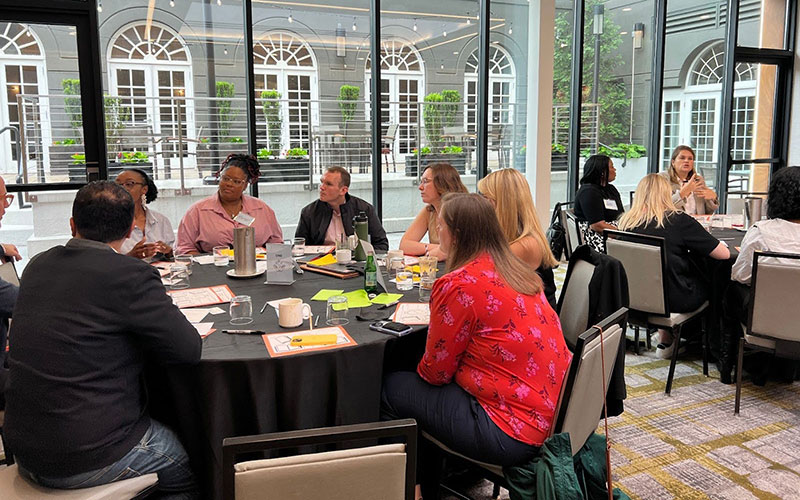
MAY 2024 | WASHINGTON, D.C.
Ensuring Healthy Outcomes Summit
The Lab joined Inspired Internet Pledge signatories and advisors at a summit co-hosted by Pinterest and the Joan Ganz Cooney Center at Sesame Workshop to answer the question: how can we ensure healthy outcomes for kids in our increasingly digital world?
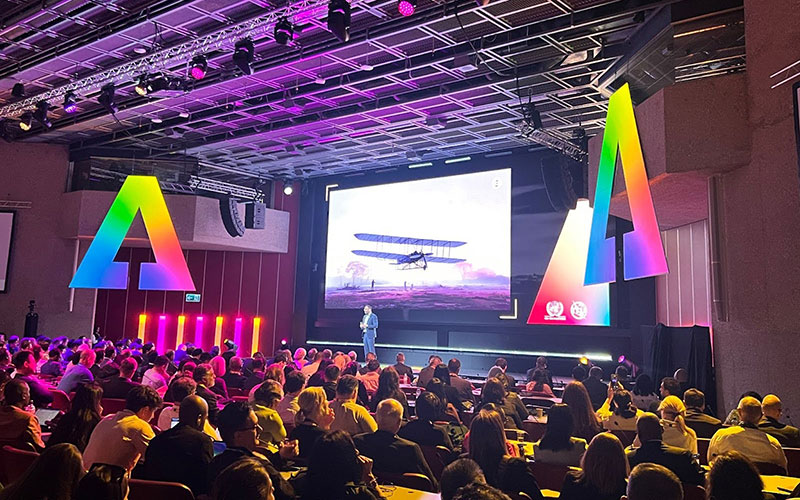
MAY 2024 | GENEVA, SWITZERLAND
AI for Good Global Summit
The Lab joined innovators and experts at the AI for Good Global Summit to discuss responsible AI for social good. We collaborated with Sync Digital Wellness to promote the Inspired Internet Pledge, advancing efforts to create a healthier digital ecosystem.
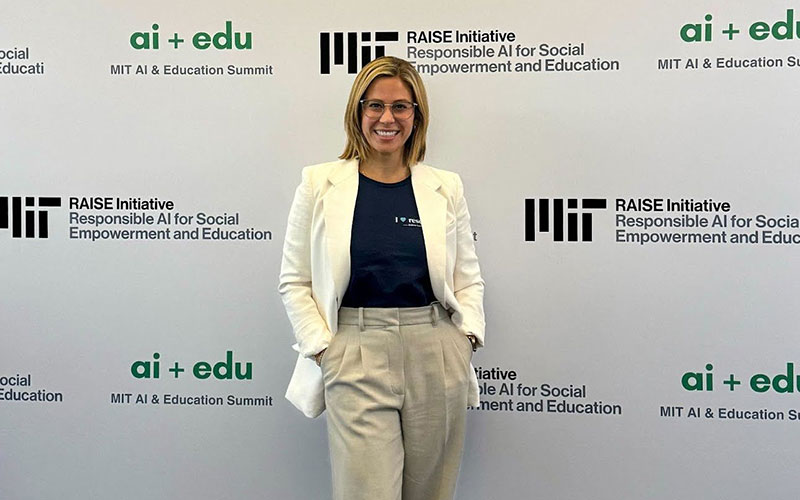
JUL 2024 | CAMBRIDGE, MA
MIT RAISE AI & Education Summit
Our Program Administrator Brinleigh Murphy-Reuter joined discussions about AI’s impact on the future of work and education. As AI rapidly evolves, preparing students to be critical, thoughtful users is essential. Summits like this enable us to bring perspectives from other experts into our ongoing research and initiatives.
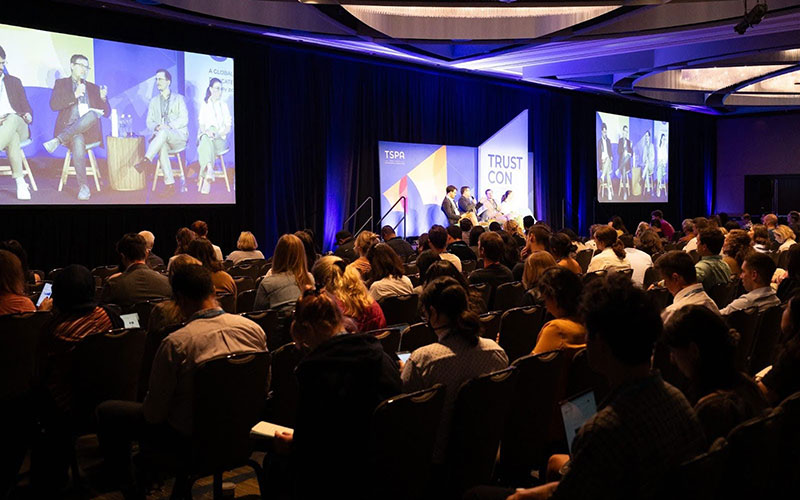
JUL 2024 | SAN FRANCISCO, CA
TrustCon Global Conference
Lab Executive Director Cori Stott joined Trust & Safety leaders at TrustCon to discuss the latest in safety innovations and research, engaging in critical conversations on platform design, youth agency, and keeping online spaces safe for all users, especially young people.
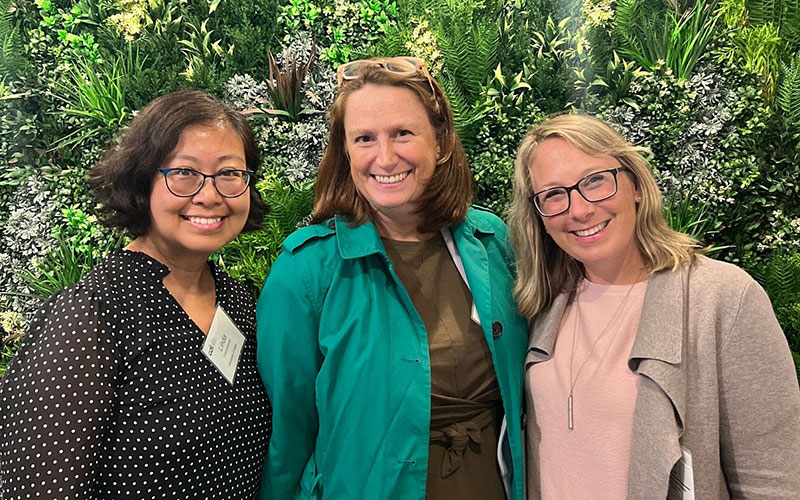
SEP 2024 | WASHINGTON, D.C.
Symposium on Child Safety Online by the Center for Democracy & Technology
Cori Stott joined colleagues from Wellesley College, CommonSense Media, and other academic researchers and tech policy developers in roundtable discussions on bridging research and policy for online child safety.
Our work is made possible through the generosity of individuals, foundations, and corporate supporters
By bringing together experts from academic research, healthcare, and the corporate sector, we advance our understanding of how media and technology shape young people’s mental, social, and emotional wellbeing. We strive to leverage these insights to drive meaningful improvements in digital design—ensuring that devices, applications, and content support healthier interactions. At the same time, we seek to empower clinicians, educators, and caregivers with the knowledge they need to help young people navigate the digital ecosystem in a safe and healthy way.
To uphold the integrity and independence of our research, we do not conduct work for hire and maintain full control over our methodologies and findings. Our supporters share our commitment to unbiased, science-driven exploration of digital wellness, and our vision of creating a healthier digital ecosystem for young people.
If your organization or foundation is interested in becoming involved as a supporter of our work, please email our Executive Director, Cori Stott.
2024 Financials
In 2024, we paused our fundraising efforts for several months to better align with hospital teams and reinforce safeguards protecting the independence of our research. This break coincided with broader financial constraints, as many potential supporters grappled with election uncertainties and changing technology regulations. Consequently, our fundraising results fell short of projections.
Despite these setbacks, we stayed true to our mission and invested in expanding our research capacity. These investments improved turnaround times, deepened our analyses, and increased the overall impact of our work. As we move into 2025, we are committed to engaging both new and existing supporters to advance our efforts in building a healthy digital future for young people.
Revenue
$1,250,000
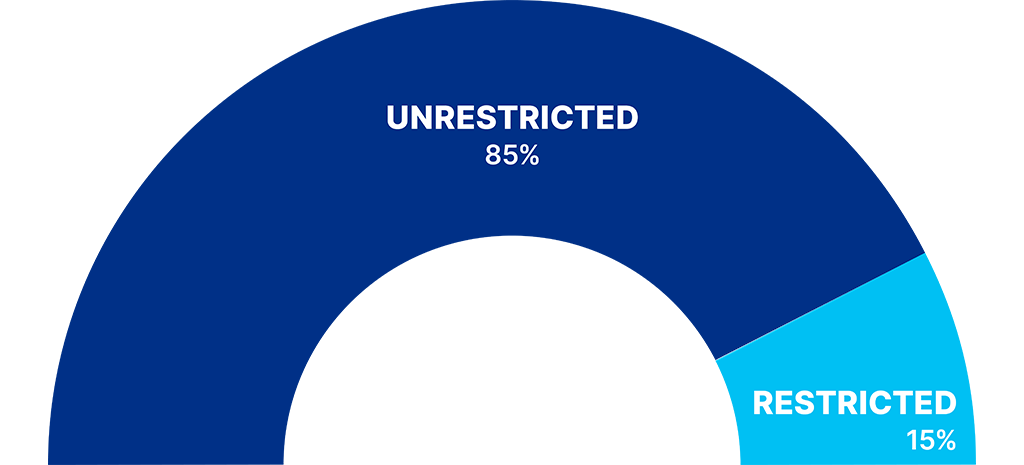
Expenses
$1,800,000
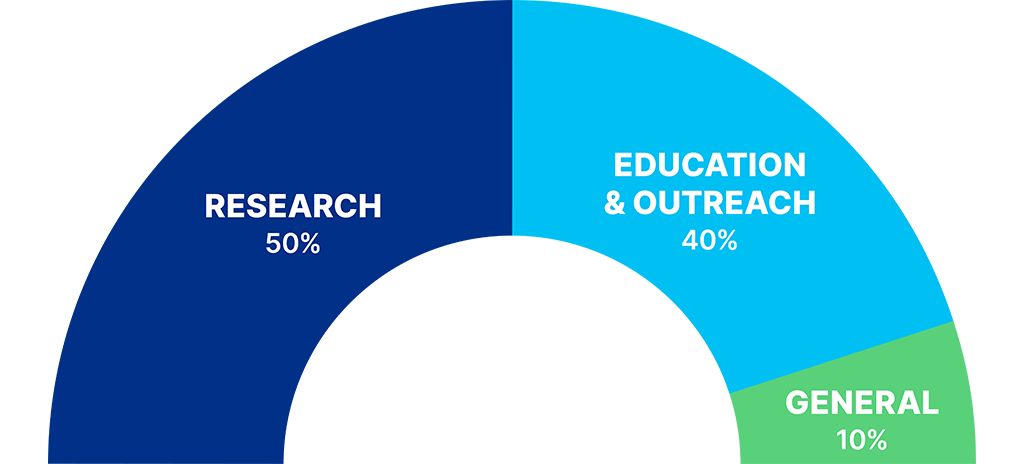
Looking Ahead
Beyond the Headlines: What’s to Come in 2025
As we enter the new year, we remain committed to advancing our understanding of digital media’s impact on youth mental, social, and emotional health—and using that insight to drive real change. By sharing our findings with technology and healthcare leaders, educators, and policymakers, we aim to shape a digital ecosystem where young people and their families can navigate technology with intention and balance.
To support this goal, we will launch several Pulse Surveys to examine emerging trends in digital media use and its effects on youth development and wellbeing. We will also introduce a beta version of our Digital Media Use Screener, a tool that enables clinicians to assess patients for Problematic Media Use (PMU). In tandem, our ongoing research will continue to explore social gaming experiences, adolescent social media use, and key risk factors associated with PMU.
Collaboration is at the heart of our work. By engaging with youth, industry leaders, and experts, we ensure our research reflects diverse perspectives and real-world experiences. Our Student Advisory Council amplifies youth voices, while partnerships with Inspired Internet Pledge signatories and advisors strengthen our efforts to promote responsible technology design and use that prioritizes wellbeing.
The path forward demands collective action from researchers, industry leaders, educators, policymakers, clinicians, and families. Guided by science and grounded in practical insights—especially from young people—we can create a digital landscape that fosters growth, connection, and wellbeing.
Your engagement, insights, and collaboration are essential to building a healthier digital future. To learn more about how you can support or actively engage with our work, please email us. Thank you for being part of this journey!
We believe that by following the science, we can create an empathetic and respectful world in which our kids can grow up healthy, smart, and kind.

Subscribe to our email newsletter to receive Lab news & insights
©2026 Boston Children’s Hospital. All rights reserved. Terms of Use Privacy Policy


